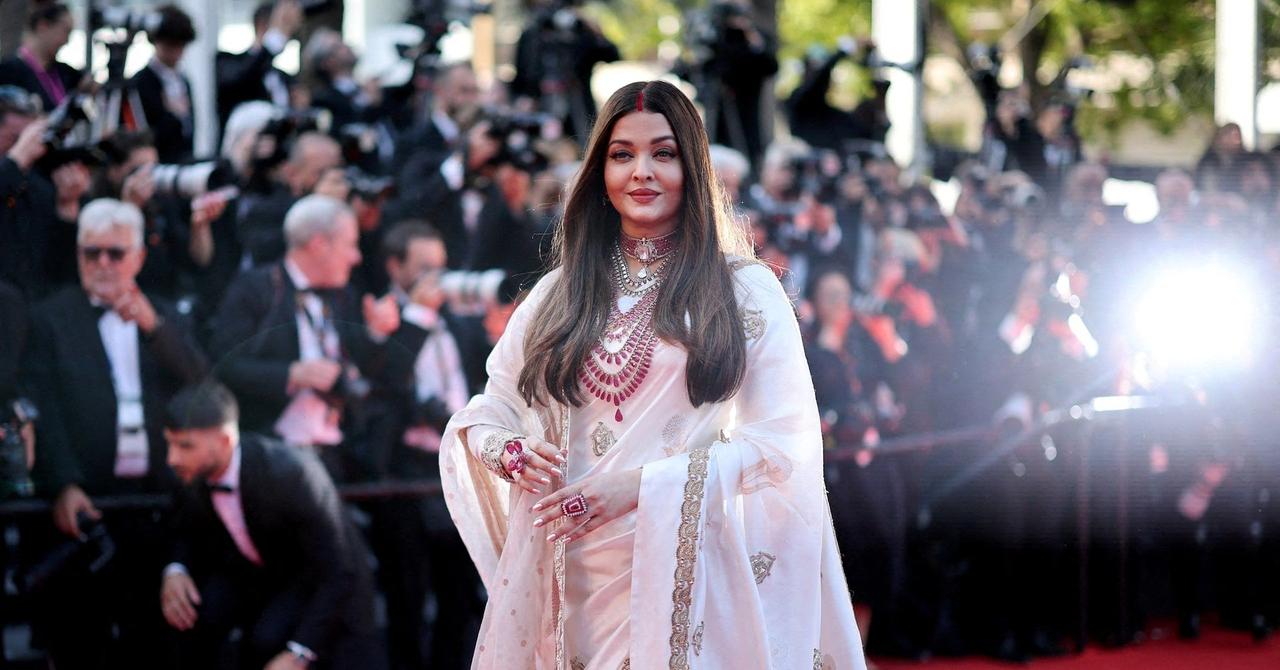AI-Altered 'Raanjhanaa' Sparks Controversy: Director and Actor Condemn Unauthorized Changes
7 Sources
7 Sources
[1]
Indian Production Company Faces Backlash for Releasing AI Altered Film Without Director's Consent - Decrypt
Critics dismiss the project as a publicity stunt, citing current AI video generation limitations, while Eros plans to review its 4,000-film library for similar AI modifications. Indian production company Eros International is releasing a version of its 2013 film Raanjhanaa with an AI-produced ending -- without the original director's involvement or consent. Scheduled for release on August 1, the new version of Raanjhanaa will be in Tamil instead of Hindi, and will include an ending which Eros states is more sensitive to the Tamil audience. Speaking to Decrypt, Eros CEO Pradeep Dwivedi stressed that only a small portion of the film has been modified, and that the original version will remain available. "The AI-assisted changes in Ambikapathy [the film's title in Tamil] represent a very small portion," he said, "well under 5% of the film's total runtime, limited to the final act of the narrative." The rerelease of the film with an AI-generated ending has attracted strong opposition from original director Aanand L. Rai, who has suggested in an interview that it "sets a deeply troubling precedent" for the motion picture industry. Rai's production company Colour Yellow is currently in the middle of a dispute with Eros over the rerelease, with the director arguing that, while Eros may hold exclusive copyright over Raanjhanaa, the new version "disregards the fundamental principles of creative intent and artistic consent." The release taps into ongoing controversies surrounding the role of AI in the film industry, one stretching at least as far back as the 2023 SAG-AFTRA strike that immobilized Hollywood for several months. According to Dwivedi, Eros did not use AI to generate scenes independently or without oversight. "Instead, we used it as a creative tool under human supervision to generate an alternate emotional resolution that aligns with the cultural tone and audience sensibilities of the Tamil market as an alternate version," he told Decrypt. Dwivedi did not provide specific details on how AI was used to modify existing scenes, although he did state that "no part of the original story was erased or replaced," and that the original film is still available for viewing. Going forward, Eros plans to continue using AI, with Dwivedi sharing that it's "reviewing" the company's library of more than 4,000 properties and will consider opportunities on a case-by-case basis, depending on legal rights and cultural and creative relevance. "We see AI as one of many tools to enhance, localize, or reimagine existing content, but always with transparency, restraint, and audience respect," he said. "This is not about replacing the past -- it's about presenting alternate lenses where appropriate." Dwivedi describes this approach as a "curated strategy," one based around "responsible innovation." But director Aanand L. Rai has argued that Eros International's plans undermine the concept of art as "a reflection of the vision and labour" of artists. "The use of AI to retrospectively manipulate narrative, tone, or meaning without the director's involvement is not only absurd, it is a direct threat to the cultural and creative fabric we work to uphold," he told Variety. "If unchecked, this sets a precedent for a future where myopic, tech-aided opportunism can override the human voice and the very idea of artistic consent." Similar sentiments are shared by artists and creators in other geographical areas, including the UK-based arts and entertainment trade union Equity, which tells Decrypt that legislation should be introduced to protect creatives from such "unethical applications" of AI. "Artificial intelligence should never be used to alter or synthesise artistic output without the consent of the creatives involved -- whether they be actors, directors, dancers, writers, and so on -- and that these creatives should be fairly remunerated for such usage," a union spokesperson told Decrypt. Not only do some observers from the arts take issue with Eros International's actions, but others suspect that the company may be more focused on generating publicity than genuinely innovating. This is the view of David Gerard of pivot-to-ai.com, who tells Decrypt that he believes Eros' actions are an "obvious" stunt. "AI video generation from scratch is simply not up to any professional standard," he said. "It can't follow a script or follow direction." Elaborating on these criticisms, Gerard notes that he and collaborator Amy Castor conducted a long experiment with Google's Veo 3 at Pivot to AI, and that the "utterly bizarre" results can be viewed on YouTube. "We demonstrated thoroughly that Veo absolutely cannot accept direction, it can't even follow a script or get the right characters saying lines," he explained, before adding that no other video generator does much better, with hallucinations and errors "intrinsic" to how these models work. "Every impressive demo that someone says came out of a video generator is at best generated with a vast amount of failed footage and often requires post-production Photoshop work on almost every frame," he added. Because Eros hasn't been particularly forthcoming with precise details of what it has done with AI, and what the AI-created scene consists in, Gerard reiterates that its rerelease of Raanjhanaa "reeks" of a publicity stunt. This, however, is disputed by Eros International and CEO Dwivedi, who has responded to earlier claims (from Rai) that the rerelease is meant to distract attention away from ongoing legal and regulatory disputes with Colour Yellow. "We reject any suggestion that this creative project was conceived as a distraction from regulatory matters," said Dwivedi, speaking to Variety. "The reinterpretation of 'Raanjhanaa' had been under development long before recent legal proceedings or regulatory commentary."
[2]
Raanjhanaa Director Slams AI-altered Version of the Movie as 'Abject Betrayal' | AIM
Aanand L Rai calls it "a reckless takeover that strips the work of its intent, its context, and its soul." Film director Aanand L Rai has said that he does not support or endorse the AI-altered version of Raanjhanaa, calling it unauthorised and distancing himself and his team from the project. "To watch Raanjhanaa, a film born out of care, conflict, collaboration, and creative risk, be altered, repackaged, and re-released without my knowledge or consent has been nothing short of devastating," Rai posted on Instagram. "What makes it worse is the complete ease and casualness with which it's been done." Rai added that he had no role in the altered version, and neither did the original team. "It is not the film we intended, or made." "I do not support or endorse the AI-altered version of Raanjhanaa," he said. Raanjhanaa, a 2013 romantic tragedy that etched itself into public memory with its heartbreaking ending, will return to theatres under its Tamil-language title Ambikapathy. But this time, the story won't end in tragedy. Eros Media Group is re-releasing the film with a machine-generated 'happy ending,' created using AI. Rai said the film was "shaped by human hands, human flaws, and human feeling," and that the circulating version is "a reckless takeover that strips the work of its intent, its context, and its soul." Speaking on behalf of the team behind the 2013 film, Rai said, "The writer, actors, composer, lyricist, editor, technicians, and larger crew... None of us were consulted. None of us were heard." He called the use of AI without permission "deeply disrespectful" and added, "To cloak a film's emotional legacy in a synthetic cape without consent is not a creative act. It's an abject betrayal of everything we built." Rai thanked the creative community and audience members who expressed support. "It has reminded me of what Raanjhanaa stood for in the first place - connection, courage, and truth," he wrote.
[3]
Not the Ending We Knew: In Rewriting Raanjhanaa, AI Rekindles Its Conflict With Art | AIM
A decade after release, film to return with a machine-made happy ending. Raanjhanaa, a 2013 romantic tragedy that etched itself into public memory with its heartbreaking ending, will return to theatres under its Tamil-language title Ambikapathy. But this time, the story won't end in tragedy. Eros Media Group is re-releasing the film with a machine-generated 'happy ending,' created using artificial intelligence, without the knowledge or involvement of its original director, Anand L Rai. Harini Lakshminarayan, COO of Rai's production house, reportedly said that it is contradictory to call this a 'respectful creative reinterpretation' while excluding the very people who made the film over a decade ago. She added that the move highlights an "urgent need for fair, transparent protocols" on the use of AI in creative work. That contradiction lies at the heart of this debate: Where does creative ownership end and corporate control begin? Director M G Srinivas told AIM: "Once a contract is signed, the complete authority lies with the production house." In legal terms, the studio owns the film. Journalist Mohar Basu put it plainly, "Well, because the IP of what you make is not yours anymore." In an industry where artists often work within tight commercial contracts, the rise of AI introduces an even starker divide between creation and control. As the film returns with a machine-made happy ending, the filmmaker's absence from the creative process draws us back to Roland Barthes' idea: once a story is told, who owns it? This marks what could be a global first, an existing film re-edited and rereleased with an AI-generated alternative ending, as a commercial release. The implications are far-reaching. For some, it signals a brave new world where technology can breathe new life into old stories. For others, it's a breach of artistic consent, one that reopens the debate around ownership, emotion, and authenticity in the age of AI. Director Anand L Rai is reportedly "heartbroken," and not without reason. Raanjhanaa was never meant to be a love story that ends in smiles. Its power lay in its realism, the religious divide, the unreciprocated love, and the devastating consequences of obsession and political manipulation. To replace that with a neatly wrapped happy ending may feel like cultural sanitisation, an effort to re-engineer emotion at the cost of honesty. Eros Media Group CEO Pradeep Dwivedi defended the decision, calling it an "exploratory baby step" in the company's long-term creative and commercial strategy. He confirmed that Eros is now evaluating its library of over 3,000 films for similar AI treatments. According to him, it's not just about rewriting endings, but about "technological innovation" that could reshape how films are preserved, updated, or even reimagined for newer generations. Amit Sheth, a noted figure in artificial intelligence, is unconvinced. Asked which movie he'd want to recreate using AI, he pointed to the coming-of-age classic Dil Chahta Hai. But even that, he says, would be a tall order. "Our culture, language and art, there's a lot of emotion there," Sheth said. The rise of AI-generated art has already disrupted the visual and literary worlds. In cinema, de-aging technology, voice cloning, and AI-assisted animation are rapidly becoming standard tools. But revisiting and rewriting the emotional arc of a finished film, a narrative the audience has already lived and processed, crosses into murkier ethical terrain. Who decides what part of a film deserves to change? While Eros may be testing the waters with Raanjhanaa, the wave it has triggered could have deeper consequences for the creative industry. If AI is used to repackage legacy films for new audiences, what happens to the original intent, the artistic signature and the cultural moment in which the work was first created? The conversation isn't just about AI or cinema. It's about the very soul of art. About whether creativity can coexist with code, or if one will eventually erase the other in the pursuit of profit, palatability, or progress.
[4]
Actor Dhanush criticises AI-altered ending for re-release of hit film Raanjhanaa
Indian actor Dhanush says he has been left "completely disturbed" by the re-release of one of his hit films with an alternative ending assisted by AI - but the production company behind it has rejected criticism of the move. Hindi-language romantic drama Raanjhanaa, called Ambikapathy in its Tamil-language title, has made headlines over its re-release 12 years after first hitting cinemas in 2013. Eros Media World says the new version, which sees the film's original ending switched to a happier one, is a "lawful and creative reinterpretation, not a replacement", and that the change and use of artificial intelligence has been made clear to viewers. The company says the alternate ending was "crafted under the direction of a human creative team using AI only as an assistive tool - not as an autonomous content generator". In a statement sent to Sky News, group chief executive Pradeep Dwivedi said the studio wanted to offer "fresh dimensions for audiences" and never intended "to undermine the original essence" of the film. However, the AI-assisted re-release has already drawn criticism from the film's director Aanand L Rai, and now its star Dhanush has released a statement to say the "AI-altered climax" had left him "completely disturbed". "This alternate ending has stripped the film of its very soul, and the concerned parties went ahead with it despite my clear objection," Dhanush said in a message posted on X. "This is not the film I committed to 12 years ago." Dhanush said the use of AI to alter films or other content "is a deeply concerning precedent for both art and artists" that "threatens the integrity of storytelling and the legacy of cinema". He added: "I sincerely hope that stricter regulations are put in place to prevent such practices in the future." Read more from Sky News: Oasis 'shocked and saddened' after man dies at Wembley gig Coldplay's viral kiss cam set to feature in UK shows Jewish comedian says she has new venue for Fringe Eros said Dhanush's "wonderful performance" in the role of Kundan had brought the character to life "in an unforgettable way". However, the studio said the actor's team had been aware of the plans before the re-release and that they had received "no formal objection". "While we acknowledge and respect differing views on the use of AI in film, our aim has been to explore how technology can complement storytelling and offer fresh dimensions for audiences - never to undermine the original essence of a film," Mr Dwivedi said. "The original Raanjhanaa and Ambikapathy remains much loved and widely available, and the IP is fully preserved." He added: "Just as storytelling evolves, so too does music - and with responsible use of AI, even the most iconic soundtracks are being respectfully reimagined as remixes to resonate with new generations while preserving their original soul. "We deeply respect the creative community and remain committed to collaborating in ways that ensure mutual respect, innovation, and progress for the cinematic arts. As one of India's most storied film studios, Eros remains committed to celebrating Indian cinema, nurturing talent, and embracing technology responsibly." Dhanush's comments come after statements posted by Rai, who has described the re-release as "a betrayal" to the original that has been "dressed up as innovation". Writing on Instagram, he said: "This was never just a film to us. It was shaped by human hands, human flaws, and human feeling. What's now being circulated is not a tribute. It is a reckless takeover that strips the work of its intent, its context, and its soul." Responding to the director's criticism, Mr Dwivedi reiterated that the re-release is "a respectful creative reinterpretation - clearly labelled and separate from the original version" and said such practices are "common in global cinema, and reflect our long-standing commitment to innovation, audience engagement, and cultural preservation". He also highlighted an ongoing legal dispute between Eros and Colour Yellow Productions, the studio co-founded by Rai. The re-release comes as artificial intelligence continues to cause concern among some in the creative industries. In June, video game actors in the US ended a strike after nearly a year of industrial action over the use of AI by game studios - an issue that was also part of the concerns raised by the Hollywood writers' and actors' strikes in 2023. Earlier this year, Oscar-nominated film The Brutalist made headlines for using the technology to "refine" Hungarian accents. It has also been used for de-aging stars such as Harrison Ford for the latest Indiana Jones film and Tom Hanks in the 2024 picture Here - and for helping to create "the last Beatles record" featuring John Lennon's vocals, released in 2023. There is a "good side" to the technology but also a "scary side", Sir Paul McCartney has said, adding: "We will just have to see where that leads."
[5]
'Raanjhanaa was shaped by human hands': Director Aanand L Rai slams AI-altered ending of his film as 'betrayal' in fiery Instagram post
Aanand L Rai, director of 'Raanjhanaa,' has strongly condemned the AI-altered version of his film set for re-release on August 1. Rai expressed his dismay on Instagram, stating the reimagined ending, created without his or his team's consent, is a 'reckless takeover' and 'abject betrayal. The studio defends its actions, citing copyright ownership and creative reinterpretation. In a world increasingly driven by algorithms and artificial intelligence, filmmaker Aanand L Rai has drawn a hard line between creative intent and digital interference. The director of the 2013 cult romantic tragedy Raanjhanaa has spoken out strongly against a proposed AI-generated alternate ending to the film, calling it a "reckless takeover" and an "abject betrayal" of the work he and his team created. Raanjhanaa producers are set to re-release the movie with a digitally generated conclusion on August 1. The reimagined ending, designed by generative AI tools, is allegedly aimed at reaching new audiences -- but without the creative team's involvement or consent. Taking to Instagram, Aanand L Rai penned a deeply personal and passionate note, voicing both grief and frustration at the unauthorized use of his film. "The past three weeks have been surreal and deeply upsetting," he began. "To watch Raanjhanaa, a film born out of care, conflict, collaboration, and creative risk, be altered, repackaged, and re-released without my knowledge or consent has been nothing short of devastating." In no uncertain terms, the filmmaker declared, "Let me say this as clearly as I can: I do not support or endorse the AI-altered version of Raanjhanaa. It is unauthorized. I had no role in it. Neither did the team that made the film." A post shared by Aanand L Rai (@aanandlrai) Rai's critique wasn't limited to just ethics -- it extended to what he sees as the soul of cinema itself. "What's now being circulated is not a tribute. It is a reckless takeover that strips the work of its intent, its context, and its soul," he wrote. Taking direct aim at the use of artificial intelligence, he added, "The idea that our work can be taken and modified by a machine, then dressed up as innovation, is deeply disrespectful... To cloak a film's emotional legacy in a synthetic cape without consent is not a creative act. It's an abject betrayal of everything we built." Rai made it clear that the entire creative team -- lyricist, writer, actors, technicians -- was left out of the decision-making process. "None of us were consulted. None of us were heard," he said. The director's post not only defended the original cinematic vision but served as a rallying cry for creators battling the intrusion of AI into the arts. According to Screen, in response to Rai's concerns, Eros Media World, the studio behind Raanjhanaa, issued a statement through Group CEO Pradeep Dwivedi. He claimed, "We are the sole and exclusive copyright holder and producer of Raanjhanaa, and are fully entitled, both legally and ethically, to adapt and re-release the film." Dwivedi described the AI edit as a "respectful creative reinterpretation" meant to expand the film's reach -- not replace it. "Such practices are common in global cinema," he said, justifying it as part of the studio's commitment to innovation. Starring Dhanush, Sonam Kapoor, and Abhay Deol, Raanjhanaa is widely remembered for its emotionally charged storytelling, A.R. Rahman's music, and its unflinching portrayal of heartbreak and political idealism. If there's one message Rai wants to leave his audience with, it's this: "If Raanjhanaa meant something to you, as it did to us, please know that this AI-altered version does not reflect who we were. Nor does it carry the spirit of the film we made."
[6]
Raanjhanaa AI re-release: Dhanush hits out at altered climax, says 'this is not the film I committed to'
Dhanush Ranjhana AI Climax: Dhanush has voiced strong disapproval of the AI-modified climax in the re-release of Raanjhanaa, stating it undermines the film's essence and was done against his wishes. He expressed concern over AI's use in creative works, fearing it threatens storytelling integrity. Director Aanand L Rai has also distanced himself from this version, marketed as a 'happy ending' where Dhanush's character lives. Dhanush has voiced his strong disapproval over the AI-modified climax in the re-release of Raanjhanaa, stating that the change undermines the essence of the original film and was made despite his opposition. In a statement posted on X (formerly Twitter), he said, "The re-release of Raanjhanaa with an AI-altered climax has completely disturbed me. This alternate ending has stripped the film of its very soul, and the concerned parties went ahead with it despite my clear objection. This is not the film I committed to 12 years ago." He further expressed concern about the broader implications of using artificial intelligence in creative works, adding, "The use of AI to alter films or content is a deeply concerning precedent for both art and artists. It threatens the integrity of storytelling and the legacy of cinema. I sincerely hope that stricter regulations are put in place to prevent such practices in the future." It's not just Dhanush who has spoken out -- Raanjhanaa's original director and co-producer, Aanand L Rai, has also reportedly taken a public stand by distancing himself from the AI-modified re-release of the film. According to a report by Indian Express, the AI version of Raanjhanaa is being marketed as an attempt to give audiences a "happy ending" to the film's original tragic storyline. A video of the altered climax, which recently went viral, depicts a drastically different ending where Kundan (Dhanush) wakes up from his deathbed, in contrast to the original version where his character dies.
[7]
Dhanush is 'completely disturbed' by AI version of Raanjhanaa. Says the ending has 'stripped the film of its soul'
Raanjhanaa's re-release in Tamil Nadu faces controversy. The film's AI-generated happy ending upsets director Aanand L. Rai. Lead actor Dhanush expresses his disappointment. He says the altered ending strips the film of its soul. Dhanush hopes for stricter regulations against AI modifications in cinema. Several filmmakers criticize the unethical changes. The internet is divided over the new ending. Dhanush and Sonam Kapoor's cult classic 2013 film Raanjhanaa has been re-released in Tamil Nadu theatres on August 1, 2025. Ahead of the re-release, the film stirred controversy due to its AI-generated "happy" ending. This alteration has upset the film's director, Aanand L. Rai, who slammed the producers for modifying the climax of the Tamil version, Ambikapathy, without his consent. Now, the film's lead actor, Dhanush, broke his silence and has strongly reacted to the change. On Sunday (August 3), the renowned actor, who portrayed Kundan in the film, issued a statement expressing his 'love for cinema' and how this "creative alternate ending" has deeply disturbed him. Taking to X (formerly Twitter), Dhanush penned a long note, writing, "This alternate ending has stripped the film of its very soul, and the concerned parties went ahead with it despite my clear objection." For the unversed, in both the original Raanjhanaa and the Tamil version Ambikapathy, Dhanush's character dies at the end. However, in the re-released dubbed version, the ending has been altered, showing Kundan (Dhanush's character) opening his eyes in a hospital, leaving Bindiya (played by Swara Bhasker) and Murari (Mohammed Zeeshan Ayyub) in joyful tears. "This is not the film I committed to 12 years ago," Dhanush continued. "The use of AI to alter films or content is a deeply concerning precedent for both art and artists. It threatens the integrity of storytelling and the legacy of cinema. I sincerely hope that stricter regulations are put in place to prevent such practices in the future," he added. Earlier, director Aanand L. Rai also took to Instagram, opening up about how this altered version undermined the original intent of the film. He questioned the future of film re-releases, expressing disappointment over the handling of Raanjhanaa. He clarified that neither he nor the original team had any involvement in the updated version. For him, the film wasn't just a project -- it was a deeply human creation, shaped by real flaws and authentic emotion. What's now being circulated, he believes, strips the film of its original intent, context, and soul. Using machines to alter and repackage such work without consent, he argued, isn't innovation -- it's a betrayal of the creative legacy they built. A post shared by Aanand L Rai (@aanandlrai) Several industry filmmakers and actors have also voiced their solidarity, criticising the AI-altered version as 'unethical.' Raanjhanaa, the 2013 romantic drama, is directed by Aanand L Rai and written by Himanshu Sharma. Over the years, the film has received critical acclaim and widespread success, creating a special place in everyone's hearts. With the new ending, the internet has become divided, while some are fuming over the changes, others are simply happy to see Kundan alive.
Share
Share
Copy Link
Eros International's AI-assisted re-release of 'Raanjhanaa' with an altered ending faces backlash from the film's original director and lead actor, igniting debates on artistic integrity and AI's role in cinema.
AI-Altered 'Raanjhanaa' Sparks Controversy in Indian Cinema
The Indian film industry is embroiled in a heated debate over the use of artificial intelligence (AI) in cinema, following the announcement of an AI-altered re-release of the 2013 romantic drama 'Raanjhanaa'. Eros International, the production company behind the film, plans to re-release the movie on August 1 with an AI-generated alternative ending, a move that has drawn sharp criticism from the original filmmakers and actors
1
2
.
Source: ET
Original Creators Express Outrage
Director Aanand L. Rai has vehemently opposed the AI-altered version, describing it as an "abject betrayal" of the original work. In a passionate Instagram post, Rai stated, "To watch Raanjhanaa, a film born out of care, conflict, collaboration, and creative risk, be altered, repackaged, and re-released without my knowledge or consent has been nothing short of devastating"
2
5
. He emphasized that neither he nor any member of the original creative team was consulted or involved in the AI-assisted modifications.Lead actor Dhanush echoed Rai's sentiments, expressing that he was "completely disturbed" by the AI-altered climax. He stated, "This alternate ending has stripped the film of its very soul, and the concerned parties went ahead with it despite my clear objection"
4
. Both Rai and Dhanush have raised concerns about the precedent this sets for the film industry and the integrity of storytelling.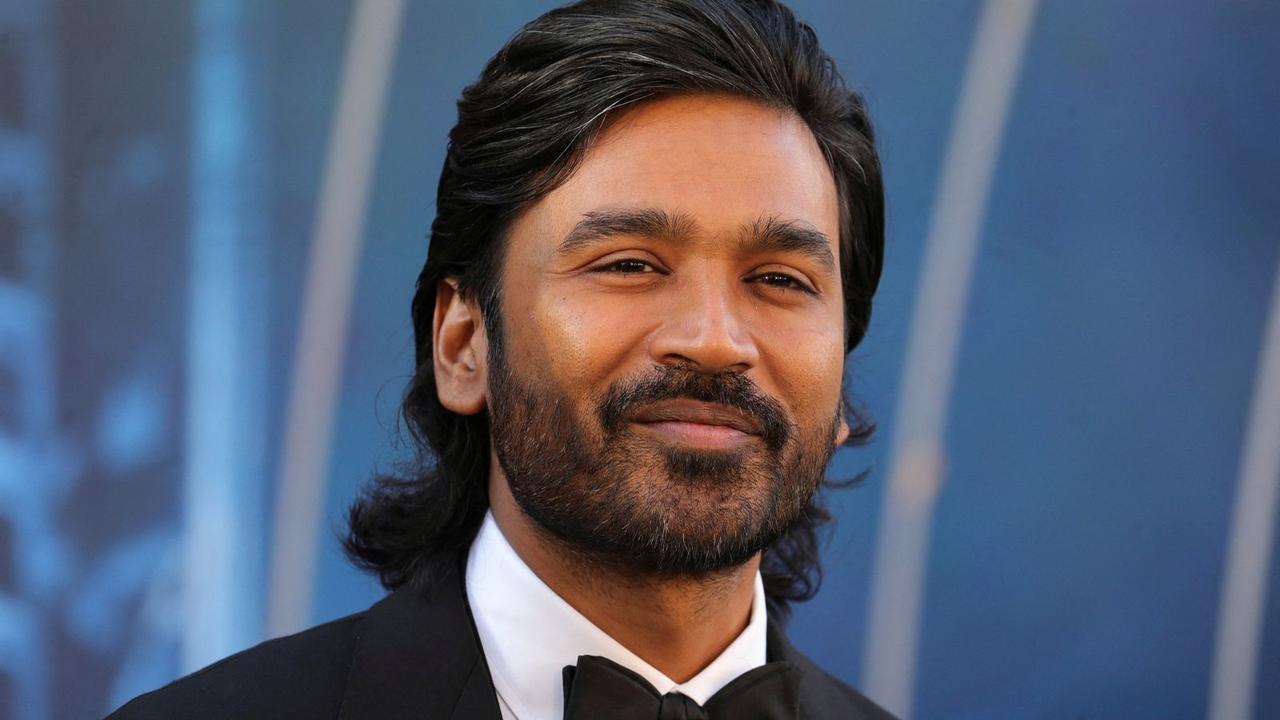
Source: Sky News
Eros International Defends Its Decision
Pradeep Dwivedi, CEO of Eros Media Group, has defended the company's decision, describing it as an "exploratory baby step" in their long-term creative and commercial strategy. Dwivedi stated that the AI-assisted changes represent "well under 5% of the film's total runtime, limited to the final act of the narrative"
1
. He emphasized that the original version of the film will remain available and that the AI was used as a creative tool under human supervision1
3
.Legal and Ethical Implications
The controversy has brought to the forefront questions about copyright ownership and artistic consent in the age of AI. Eros International claims it has the legal right to modify the film as the sole copyright holder
5
. However, this stance has been challenged by the original creators, who argue that such alterations violate the fundamental principles of creative intent and artistic consent1
.Related Stories
Broader Implications for the Film Industry
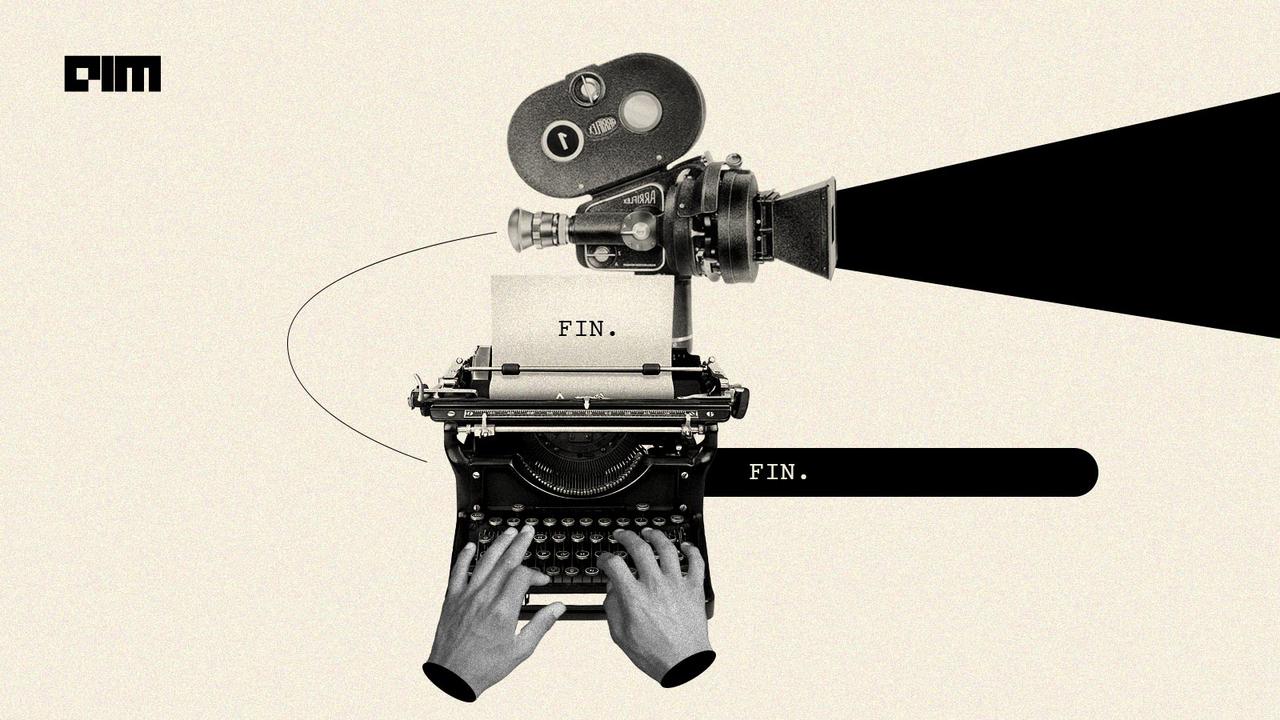
Source: AIM
This incident has reignited discussions about the role of AI in the creative industries. While some view AI as a tool for innovation and audience engagement, others see it as a threat to artistic integrity. Eros has revealed plans to evaluate its library of over 3,000 films for similar AI treatments, signaling a potential shift in how legacy films might be repackaged for new audiences
3
.Industry Reactions and Future Concerns
The controversy has elicited responses from various industry professionals. Some, like director M.G. Srinivas, point out that once a contract is signed, the production house typically has complete authority over the film
3
. Others, including AI expert Amit Sheth, express skepticism about the current capabilities of AI in faithfully recreating or altering complex narratives3
.As the debate unfolds, it raises critical questions about the future of filmmaking, the preservation of artistic vision, and the ethical use of AI in creative works. The 'Raanjhanaa' controversy may well serve as a watershed moment in defining the boundaries between technological innovation and artistic integrity in the film industry
1
2
3
4
5
.References
Summarized by
Navi
Related Stories
AI Reshapes Bollywood: A Clash Between Innovation and Tradition
01 Sept 2025•Technology
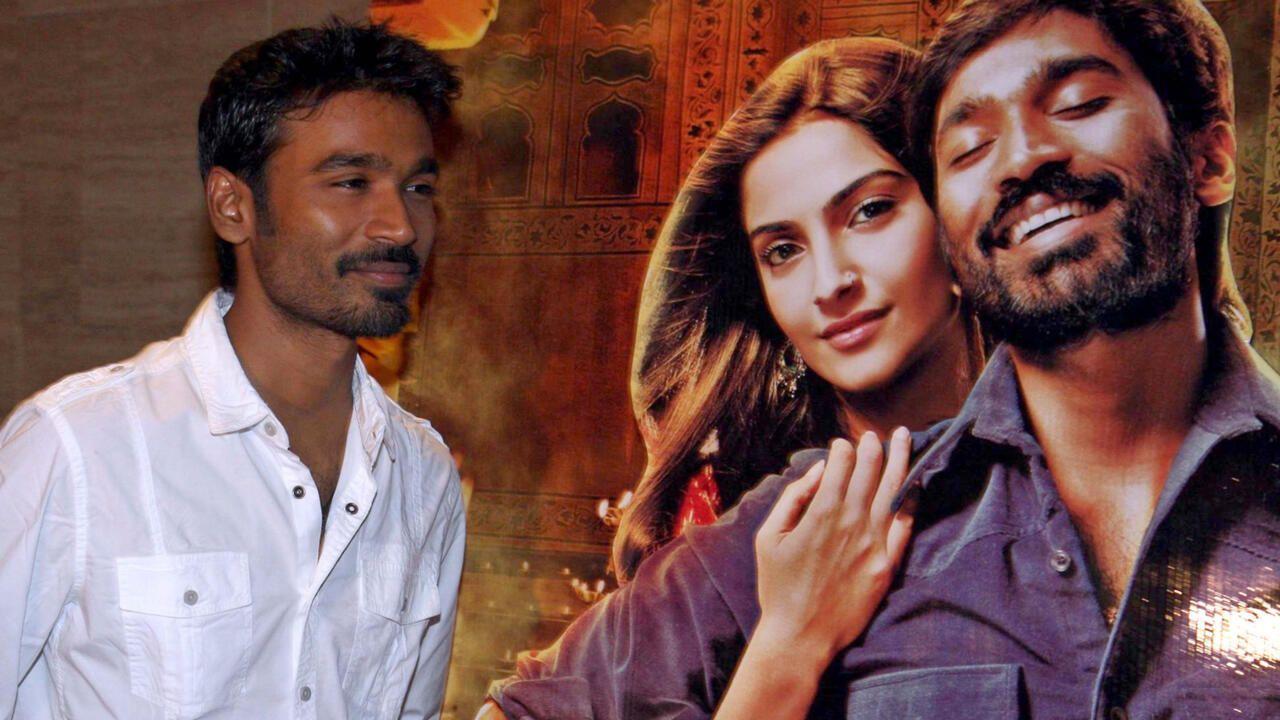
Rana Daggubati says AI in cinema lets filmmakers watch movies before shooting even begins
16 Feb 2026•Entertainment and Society
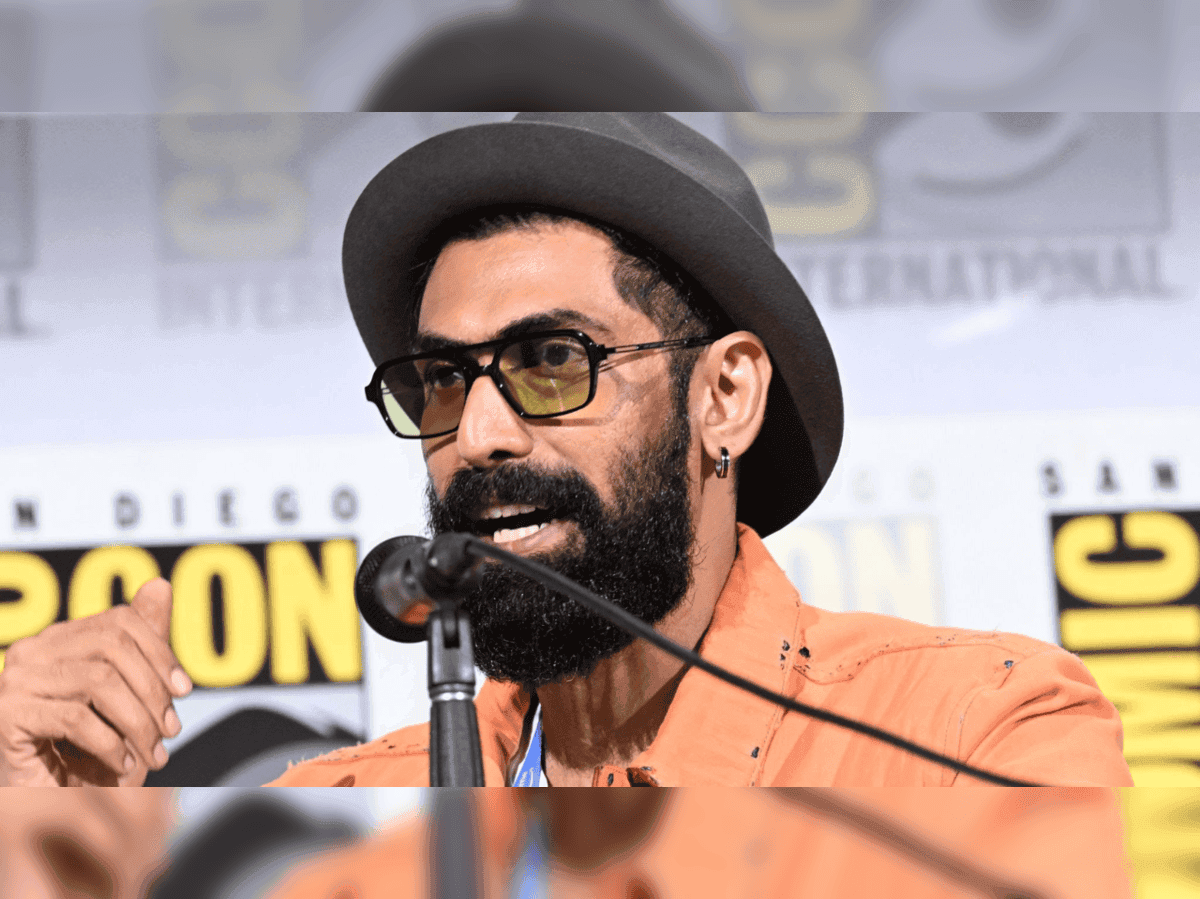
AI-Altered Film Sparks Controversy: Gay Couple Made Straight in Chinese Release
25 Sept 2025•Entertainment and Society
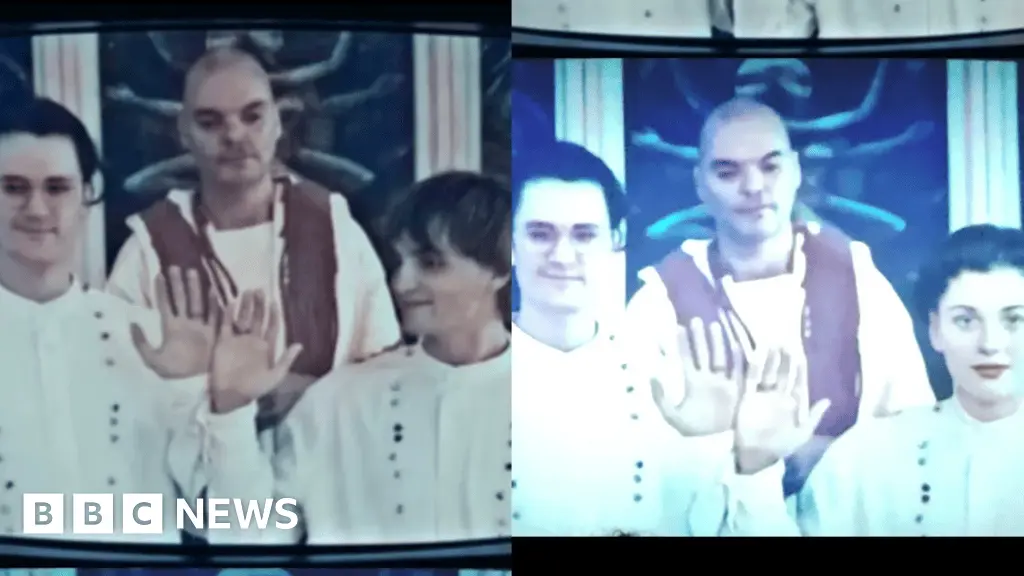
Recent Highlights
1
Pentagon threatens Anthropic with Defense Production Act over AI military use restrictions
Policy and Regulation

2
Google Gemini 3.1 Pro doubles reasoning score, beats rivals in key AI benchmarks
Technology

3
Anthropic accuses Chinese AI labs of stealing Claude through 24,000 fake accounts
Policy and Regulation

